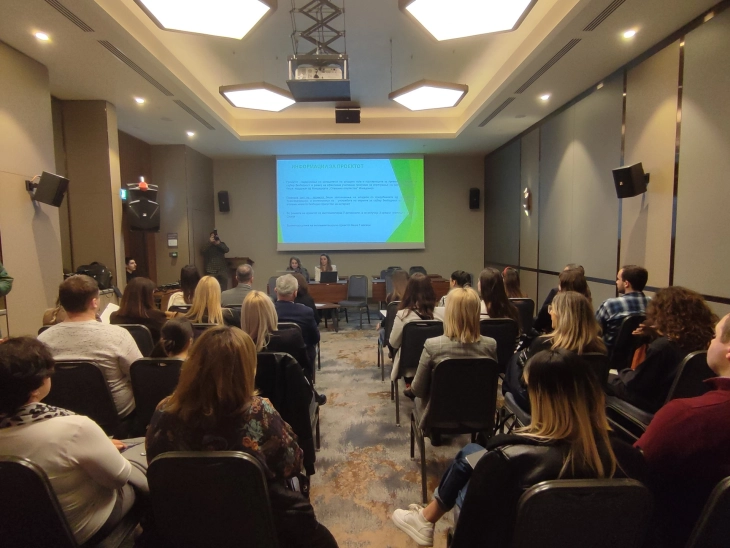Analytica: 51 percent of 313 surveyed high schoolers in Skopje have been victims of cyberviolence
- Students understand the opportunities digitization offers, but 43.5 percent of survey respondents see frequent cyberviolence as the biggest challenge in digital transformation.

Skopje, 29 February 2024 (MIA) - Students understand the opportunities digitization offers, but 43.5 percent of survey respondents see frequent cyberviolence as the biggest challenge in digital transformation.
The Analytica think tank presented Thursday the results from a seven-month-long survey, including 313 students, and a questionnaire of 25 questions. Surveyed students were from three high schools in Skopje - "Nikola Karev" and "Georgi Dimitrov" high schools in Karposh municipality, and "Shaip Jusuf" vocational high school in Shuto Orizari.
Analytica project expert Maja Hristovska said 51 percent of students have been victims of cyberviolence.
"In general, it's cyberbullying. Research showed that a large number of high schools conduct internal campaigns and students know that they should ask for help. Students mostly seek help from their parents and expert services, but a large percentage also seek help from fellow students," Hristovska told Thursday's final conference within a project on cybersecurity and digitization, implemented by the think tank with financial support from the Foundation Open Society.

Cases of cyberviolence varied, some of the students were victims of online predators, while others were victims of classmates.
"We believe that there is an absence of certain programs in schools that should contain topics about cybersecurity, i.e. we believe that such programs should be slightly improved, also that the entire education process should educate students to be more digitally fluent, and find their way around in the digital era," Hristovska stressed.
According to her, students should first seek help from the schools, teachers or expert services, and also parents.
In the three schools surveyed, peer education and formal peer education clubs have been established, as part of the project, where student peer educators will conduct actions to mobilize other students to join the campaign on dealing with violence.
Recommendations for the application of measures for greater cybersecurity in the Internet sphere can be found in the educational handbook, published within the project, which was also promoted today, and Hristovska believes that schools also have precise protocols on dealing with all forms of violence.
The handbook can be used by professors, students and parents, and serve as a resource material for schools. Therefore, 15 professors and 15 peer educators have been trained to improve school programs on the topic of cybersecurity. An educational and informational mobile application has also been designed and put in use. ssh/nn/
Photo: MIA







